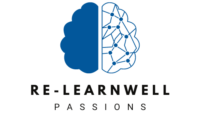The Pros and Cons of Different Savings Accounts: A Comprehensive Guide
Saving money is an important aspect of personal finance, and choosing the right savings account can make a big difference in your overall financial security. With so many options available, it can be overwhelming to know where to start. In this article, we’ll provide you with a comprehensive guide to the pros and cons of different savings accounts and help you make the best choice for your needs.
- Traditional Savings Accounts
Traditional savings accounts are the most basic type of savings account and are offered by most banks and credit unions. They typically offer low interest rates, but are FDIC insured, meaning your deposits are protected up to $250,000.
Pros:
- FDIC insured
- Easy to access your funds
- No monthly fees or minimum balance requirements
Cons:
- Low interest rates
- Limited transactions allowed each month
- High-Yield Savings Accounts
High-yield savings accounts offer higher interest rates than traditional savings accounts and are a great option for those looking to grow their savings. These accounts are also FDIC insured and typically offer easy access to your funds.
Pros:
- Higher interest rates than traditional savings accounts
- FDIC insured
- Easy to access your funds
Cons:
- May require a minimum balance
- Limited transactions allowed each month
- Money Market Accounts
Money market accounts are similar to savings accounts, but offer higher interest rates and often have check-writing capabilities. These accounts are also FDIC insured and offer a low risk investment option.
Pros:
- Higher interest rates than traditional savings accounts
- FDIC insured
- Check-writing capabilities
Cons:
- May require a minimum balance
- Limited transactions allowed each month
- Certificates of Deposit (CDs)
Certificates of Deposit (CDs) are savings accounts with a fixed interest rate and maturity date. They offer higher interest rates than traditional savings accounts, but require you to keep your money in the account for a set period of time. CDs are FDIC insured, making them a low risk investment option.
Pros:
- Higher interest rates than traditional savings accounts
- FDIC insured
- Low risk investment option
Cons:
- Penalty for early withdrawal
- Limited access to your funds
- Online Savings Accounts
Online savings accounts are a newer option and offer high interest rates, low fees, and easy access to your funds. However, they may not be FDIC insured, so it’s important to research the safety of your deposits before choosing an online savings account.
Pros:
- High interest rates
- Low fees
- Easy access to your funds
Cons:
- May not be FDIC insured
- Limited in-person support and services
Conclusion
Choosing the right savings account is an important aspect of personal finance, and there are many options to consider. By understanding the pros and cons of different savings accounts, you can make an informed decision and ensure that your savings are protected and growing. Whether you choose a traditional savings account, high-yield savings account, money market account, CD, or online savings account, it’s important to compare your options and choose the one that best fits your needs and financial goals.
